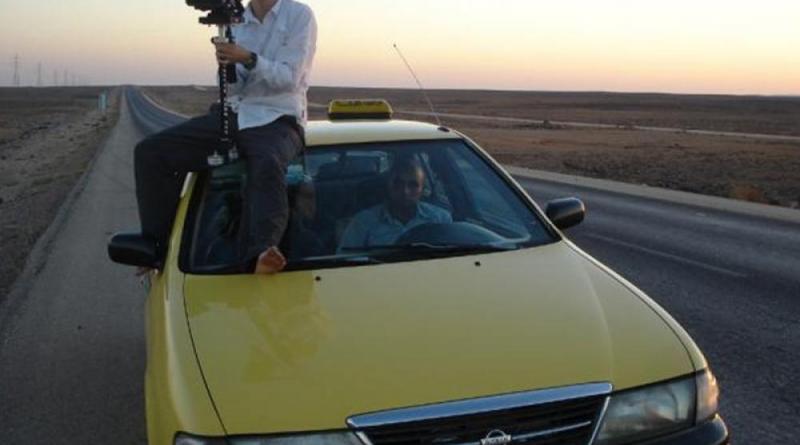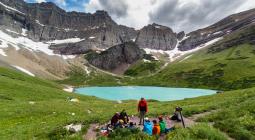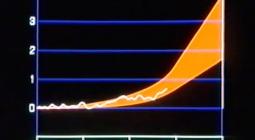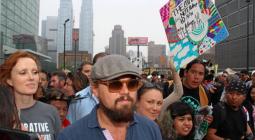The Age of Stupid film premiere.

“What I don’t understand is where does everybody else get their apathy from?” Franny Armstrong is out to change the minds of 250 million people...
This evening a film that began life as a low budget climate change documentary will be launched as the biggest simultaneous premiere of all time. After years living on minimum wage, director Franny Armstrong will parade down a 60 metre green carpet in Leicester square with a gang of A-list celebrities to watch The Age of Stupid - a docu-drama narrated by her favourite actor, Pete Postlethwaite.
And while the stars eat peddle-powered popcorn in a specially constructed solar-powered tent in central London, thousands of people in 64 cinemas up and down the country will hold their own events, watching the same broadcast but with local guest speakers. It will be 'a people’s premiere' - fitting for an independent film financed through the generosity of 228 different investors, which Armstrong hopes will create millions of angry citizens in the run-up to December’s climate change talks in Copenhagen.
“We young people in the west are in a very powerful position to do something,” says 36-year-old Armstrong, at a pub near her portacabin-sized office in Camden. “I don’t understand where everybody gets their apathy from. It’s an honour really to be in this position where we could influence history.”
Flicking constantly through her two diaries and impatiently stirring her tea while she talks, Armstrong is dedicated, brisk, and in her words “bloody minded”. She is not one to see both sides of the coin (carbon offsetting is “palpable nonsense”, for instance, and anyone who thinks climate change makes dry TV must think “the fate of the human species is boring”). Orchestrating a national film premiere for less than the price Jennifer Aniston would pay for a launch-night haircut has left her incredibly busy, and she speaks so quickly that when I replay the interview later I have to listen to it on ‘slow’ mode, which has the effect of bringing her down to a normal pace and making me sound like I’m coming round from a general anesthetic.
“I've been making the film for five years and I kept deluding myself that as soon as it was finished I could get a life and grow vegetables and have a dog," she hurtles along, "but I was persuaded that actually the responsibility starts now. We’re launching a new campaign called Not Stupid which is supported by Friends of the Earth, Greenpeace, Stop Climate Chaos, all of them pretty much, with the aim of reaching 250 million viewers this year in the run-up to Copenhagen" she says. “It could be the end of the world right? So we may as well aim high.”
It’s hard to imagine Armstrong doing anything but. She began her first documentary aged 22 on a story that no-one else would touch: that of the notorious McDonalds Libel case. A dozen commissioners turned her down so she made McLibel herself, and her tale of the fast food giant’s attempt to sue two London Greenpeace activists has now been seen by 25 million people worldwide.
As the daughter of BBC human rights documentary maker, Peter Armstrong, Franny grew up with politics. “I basically had the whole global/local thing going on with my parents,” she says. “My dad was very much Mr Global, he was making these films about big political issues and poverty. Meanwhile my mum always acted local; she would take homeless people in off the streets and organise giving out leaflets and stuff like that. I really got the double whammy between them.”
Armstrong first became interested in climate change at school in the 80s in the days when it was still called the greenhouse effect, and say she remembers thinking “bloody hell this sounds serious”. She became a vegetarian at 11 and used to hound teachers who didn’t have catalytic converters on their cars. Then, studying Zoology at University College London, she wrote her thesis in response to the question ‘Is the human species suicidal?’ “It was about all the different ways we could wipe ourselves out,” she says. “I read it again the other month and I realised it was a total blueprint for the film.”
The only detour in her career path from pestering eco-child to campaigning director was a four year stint in her early twenties as a drummer in a pop group called The Band of Holy Joy. They graced the pages of NME and had a record deal, but, she says, “I left because I wanted to do something slightly more worthwhile than just hit things rhythmically for my whole life.”
It was her dad who first suggested she make a film. Thinking that the McDonald’s libel case would be right up her street, he gave her a camera and off she went. Since then she has made documentaries about big dams in India (getting herself arrested along the way), racism in the police force and warming in Alaska, among others. She has set up her own production company, Spanner Films and overcome countless logistical barriers (like having no funding, marshalling hundreds of volunteers, and people repeatedly throwing out things they’d promised to donate to her). And she has consistently ignored those who have told her she’s wrong, including, most recently, her father.
“You’ve got to be bloody minded, arrogant.” She says. “It all started with McLibel. I tried to get a commission off all of the normal commissioners - about 12 of them from different TV companies - and they all said ‘this isn’t a good enough story’, or ‘this’ll never work as a film’. And me, having never made a film, aged 22, thought no, you’re all wrong,” she pauses. “I mean these are all established media people and I thought ‘you’re all wrong and I’m right’. That is so arrogant.”
“Halfway through The Age of Stupid I had an argument with my dad when I was thinking about adding a drama element to the film. My dad was saying that I shouldn’t do it, that it would be better just as a documentary. But then I went ahead against my dad, which I never do. When he saw the final thing, he said ‘oh yeah, it is better you’re right.’”
The only time that Armstrong abandons her brisk demeanour is when she talks about working with the oscar-nominated Pete Postlethwaite, who she says is genuinely her favourite actor. “I googled him just in case he was interested in climate change, and it turned out he was in the middle of a fight with his council to get a wind turbine on his roof” she says with clear excitement. “The most thrilling moment of the entire film was when Pete was recording his piece to camera, looking straight at me. My favourite actor was saying my lines, in my film, on this set that we built ourselves in two weeks” she grins broadly. “That was just un-fucking-believable.”
Three years ago the environmentalist Bill McKibben said that climate change "hasn't registered in our gut; it isn't part of our culture. Where are the books?”. He demanded, “The poems? The plays? The goddamn operas?” If the film An Inconvenient Truth made such waves by appealing to our intellect with its alarming graphs and statistics, perhaps The Age of Stupid - with its human stories from Iraq, India and the French Alps – will be the start of a more emotional, gutsy understanding of climate change. “Film is a brilliant way to motivate people,” Armstrong says, “because you can do the double whammy: you can make the argument but you can also do it in an emotional way, and that’s what people respond to.”
Armstrong claims that this will be her last film, but then she’s been saying that since her very first short film – a documentary for the Vegan Society – and Stupid is her sixth. It seems doubtful she'd ever swap film-making for a quiet life with a vegetable patch, but she might just trade in her camera to take up full-time campaigning. "For anybody who understands climate change, to work on anything else at this stage in the game is pointless,” she says.
Her next mission is to show The Age of Stupid to 250 million people around the world, through cinemas, TV, DVD sales and screenings at schools and community centres. She already has the interest of men such as Kofi Annan, Prince Charles, Ed Miliband and the President of the Maldives. Even Obama’s people have come calling. But her ultimate aim is not just to get viewers to change their lifestyles, but to persuade them to lobby their leaders for stricter laws.
"We need a new international deal to be introduced,” she says. “It’s like the smoking ban, as soon as that came in everybody stood outside to smoke cigarettes. If we’d just said to everybody 'please could you smoke your cigarettes outside' they wouldn’t have would they? That’s why we need laws, that’s why it’s all about the climate talks in Copenhagen at the end of the year [where international leaders will meet to agree a new treaty on reducing greenhouse gas emissions].”
Towards the end of the interview the diary flicking becomes more frantic, and she starts reeling off the tasks she still has to do this afternoon: write an article for WWF, output the 'making of' video, record a voiceover for the 'making of', get supporters to distribute posters and arrange a host for the people’s premier. At the end of the conversation I glance behind me to pick my coat up. Armstrong never took hers off. By the time I look back she’s already halfway out of the pub door, off to lodge climate change firmly in our guts.
THE ECOLOGIST




